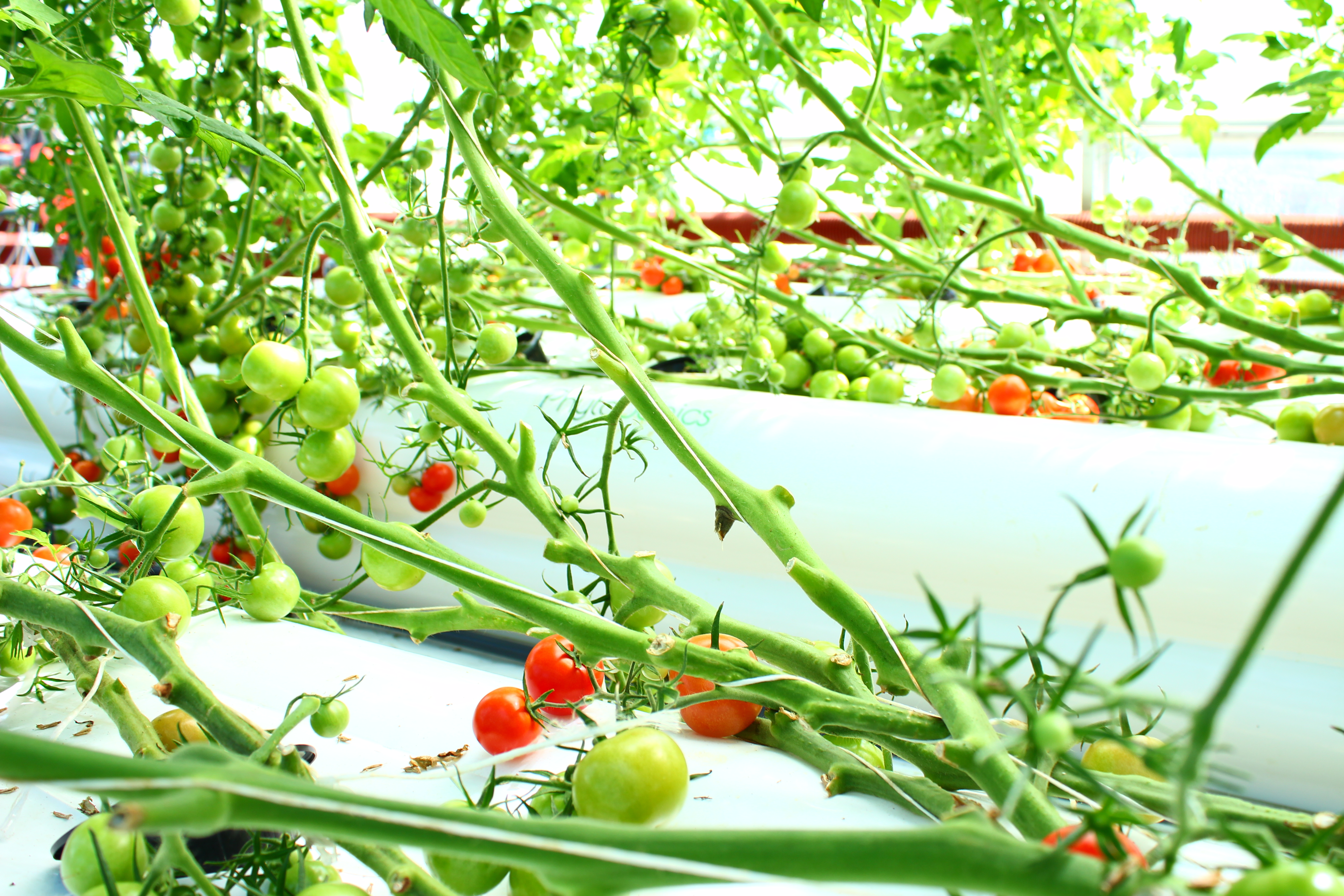A new deep-water approach to hydroponics has earned Welsh agtech startup, Phytoponics, £500,000 ($650k) of seed funding support over the last two years, lining the company up for major Series A investment push in mid-2019.
The first round in 2017, which closed on £200k, was backed by five new angel investors led by Smart Anchor Capital based in London and Cardiff. This year’s second round, which raised £300k and was also led by Smart Anchor Capital, consisted of follow-on funding by four of the first round investors, alongside eight new people.
The Aberystwyth-based company was co-founded by Adam Dixon and Luke Parkin in October 2016 with the aim of delivering hydroponic systems designed to produce better crop yields than are possible through conventional greenhouse-based methods. The company’s patented Hydrosac technology is now deemed to be ready for high volume commercial output, having proven itself by producing high-quality tomatoes through a pilot project run in conjunction with Aberystwyth University in Wales.
“The primary difference of Hydrosac is its use of more water than existing hydroponic systems, giving plants a wider buffer range of nutrients, temperature and dissolved oxygen,” said Dixon. “This results in less fluctuation in root zone conditions, which makes production more predictable and programmable than has been possible in the past.”
“Our system is particularly designed for large vine crops such as tomatoes, peppers, and cucumbers, as opposed to many others who concentrate more on salad crops.”
For tomato production, the Phytoponics system provides about 10 liters of water per plant, which the company says depletes the available nutrients at a much-reduced rate compared to when less water is used.
“I’ve been with working with hydroponics for more than 10 years, including leading up to starting preparations for the launch of Phytoponics about three years ago,” said Dixon. “Our first two years in business, since our official launch, has been focused on development and initial trials with a little bit of funding being sourced in year one, followed by the £500,000 we’ve raised this year.
“This new money allowed us to progress to the pilot trial at Aberystwyth University and the bringing in of high-level horticulture sector expertise to help us make our system fully commercial and ready to go.
“It was hard finding investors during the period we were developing the technology, especially in a sector like horticulture where trials, which are greenhouse-based, can only be run on an annual basis.
“Our big technology breakthrough came through running the pilot at Aberystwyth University and then winning the United Nation’s Young Champion of the Earth award in 2017. That gave us a major boost of recognition, enabling us to take our plans to a London investor in December last year, which led to our first round of seed funding.”
Despite gaining a $15,000 prize as part of the UN award and a number of other relatively small competition prizes over the last two years, Dixon doesn’t believe start-ups should concentrate too much on competitions and awards.
“It’s important to focus primarily on building the proof points of your business, relating to potential customers and developing the necessary specialist expertise to allow you to progress,” he said. “Awards are good if you can’t get sales, which we couldn’t in the early stage of our development, but not so much after that point.”
The next big change for the business was Smart Anchor Capital’s founder partner, Mark Hindmarsh, recently joining Phytoponics as chairman.
“Mark has really helped us refine and develop our business model, work on our proof points for fundraising and generally commercialize our operation,” said Dixon, whose initial contact with Mark came via a shared LinkedIn friend.
Hindmarsh is also upbeat about the relationship he has with Phytoponics and the company’s potential.
“The team at Phytoponics have achieved an amazing amount in the last 12 months, often with little resource,” said Hindmarsh. “Despite that, they have attracted the attention of potential partners and customers in the US, India, UAE, Africa, Canada, and many other countries.
“As new shareholders ourselves, we are excited to see what the future holds for the company considering the opportunities that lie ahead. As their recently appointed Chairman, I am personally looking forward to playing my part in helping the company achieve its next milestones in advance of a larger fund-raise within the next 12 months.”
Hindmarsh added that with this year’s round ending up 3x over-subscribed, the team is now considering opening up another £400,000 or so for funding early in 2019. This would be done via a convertible loan note instrument to give investors an opportunity to participate prior to the Series A round in late summer 2019.
Funding aside, the next physical step for Phytoponics involves the launch of a farm-scale trial with a major commercial grower (still secret at present) who will use the company’s technology to grow tomatoes for two major UK supermarkets early in 2019.
Beyond that, the company is planning to hire new employees to help with both technical and commercial developments.
“I believe our technology is globally significant,” said Dixon. “Initially, therefore, we’re looking to make a big impact on horticultural production in the UK, with the potential to scale our operation internationally through our own technology platform and business partnerships.”





